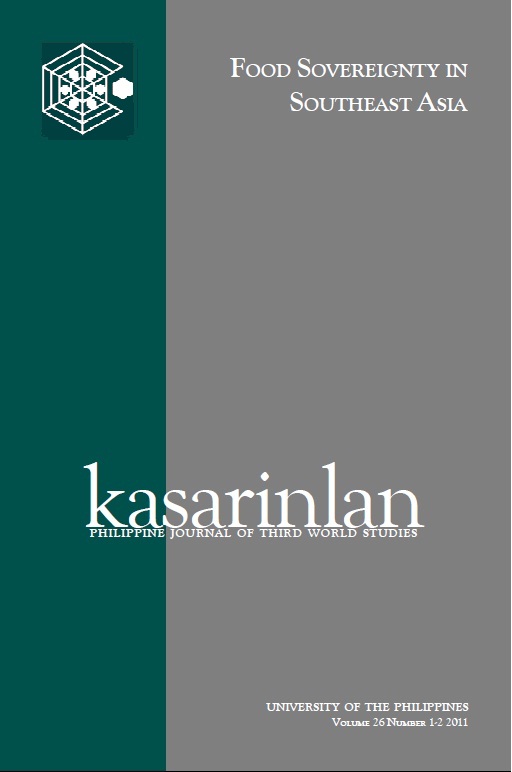Land Conversion and Agrofuel Plantations in Mindanao: Promises and Uncertainties
Abstract
As a signatory to the Kyoto Protocol, the Philippines enacted the Biofuels Act of 2006 (RA 9367). Signed into law in January 2007, it aims for the phasing out of harmful gasoline additives and/or oxygenates, and the mandatory use of biofuels with one percent biodiesel blend and five percent bioethanol blend for all diesel and gasoline fuels, respectively. This policy has led to frenzied development of biofuel plantations, particularly sugarcane, cassava, and sweet sorghum for bioethanol production, and coconut, oil palm, and jatropha for production of biodiesel. Mindanao has been identified as a major contributor in fulfilling the Philippine government’s biofuel targets. The island’s vast agricultural lands are thus giving way to monocrop oil plantations.
How to Cite
(AFRIM), Alternate Forum for Research in Mindanao.
Land Conversion and Agrofuel Plantations in Mindanao: Promises and Uncertainties.
Kasarinlan: Philippine Journal of Third World Studies, [S.l.], v. 26, n. 1-2, p. 285-294, dec. 2012.
ISSN 2012-080X.
Available at: <https://journals.upd.edu.ph/index.php/kasarinlan/article/view/3500>. Date accessed: 20 sep. 2025.
Section
Research Notes
Keywords
land conversion; Mindanao; biofuels; land grabbing
By submitting a manuscript, the authors agree that the exclusive rights to reproduce and distribute the article have been given to the Third World Studies Center.



